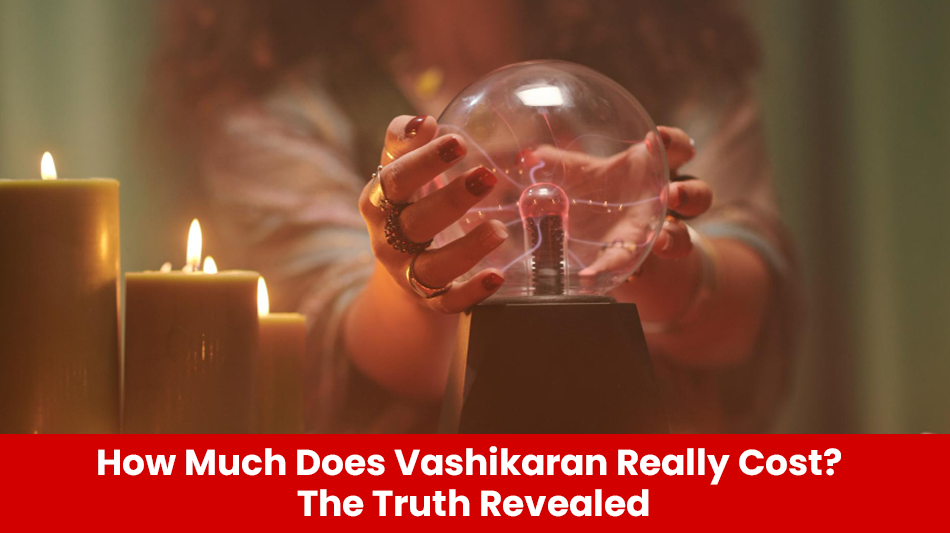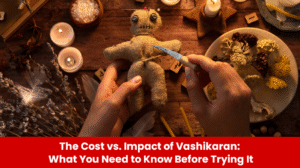Vashikaran is an old practice wrapped in belief, emotion, and hope. When someone is hurting or desperate for a change — love, family peace, or success — the temptation to choose the cheapest option is strong. But cutting costs here can bring serious problems. This article explains, in simple language, why cheap vashikaran services can be dangerous and how to protect yourself.
1. Cheap often means inexperienced or fraudulent
Low price tags attract people who want fast results. Unfortunately, many low-cost offers come from people who either don’t understand what they claim to do, or who are outright scammers. An inexperienced practitioner can:- Give wrong instructions that waste your time and money.
- Use copied or generic rituals that are ineffective.
- Make promises they cannot keep, then disappear when things go wrong.
2. Emotional harm and false hope
Vashikaran deals with feelings and relationships. Cheap services that promise miracles can give false hope. That hope can keep you stuck in a harmful pattern: spending more money, waiting for change, blaming yourself when nothing happens.Emotional harm looks like:- Growing dependence on the practitioner for every problem.
- Wasted emotional energy and time.
- Increased anxiety or disappointment when promises fail.
3. Manipulation and coercion risks
Some unscrupulous practitioners exploit vulnerability. They may use pressure tactics to get more money, demand personal or intimate information, or ask for items that should never be shared (like bank details or private photos).Watch out for signs of manipulation:- Repeated requests for extra payments labeled “advanced rituals.”
- Demands for passwords, account access, or other sensitive data.
- Threats claiming bad luck will follow if you stop paying.
4. Poor or dangerous practices
Cost-cutting can mean unsafe or sloppy rituals. In some cases, practitioners use herbs, oils, or objects that can cause allergic reactions, skin irritation, or other physical harm. Others may suggest actions that are emotionally or legally risky, like harassment or deception.If a ritual asks you to hurt someone, break the law, or take dangerous substances — walk away immediately. Safety and consent must always come first.5. Lack of follow-up and guidance
A quality practitioner offers guidance, explains potential outcomes, and follows up to check how you’re doing. Cheap services often stop at the ritual — no aftercare, no checking in, no explanation of what to expect next. That leaves you alone to cope with any consequences, confusion, or disappointment.Good follow-up includes:- Honest discussion of realistic outcomes.
- Advice on practical steps to improve your situation.
- Clear boundaries and respectful communication.
6. Scams and money loss
The most obvious danger of choosing the cheapest option is losing money. Scammers hook people with low upfront fees and then upsell complicated packages. They may vanish with no refund.Tips to avoid financial scams:- Never pay large sums upfront without verifying credentials.
- Avoid practitioners who refuse to give clear written information about costs.
- Ask for references or testimonials you can verify.
7. Reputation and ethical concerns
Some low-cost providers use unethical marketing — fake testimonials, stolen photos, or exaggerated claims. This harms the entire field and makes it harder to find reputable help. Choosing a cheap service can indirectly support those unethical practices.Support ethical practitioners who are transparent about what they do — and what they can’t do.8. How to choose safer alternatives
If you’re considering vashikaran or spiritual help, here are steps to protect yourself:- Research: Look for honest reviews and real testimonials. Ask trusted friends or community members for recommendations.
- Check transparency: A trustworthy practitioner explains the process, risks, timeline, and costs up front.
- Ask questions: What are the expected results? How long will it take? What follow-up is provided?
- Avoid pressure: If someone demands immediate payment or extra rituals, step back.
- Protect your privacy: Never share bank details, account passwords, or explicit photos.
- Combine approaches: Consider counseling, mediation, or legal advice alongside spiritual help for relationship problems.
9. When to stop and seek other help
If a practitioner asks you to harm someone, break the law, hide things, or keep secrets that hurt you or others — stop immediately. These are signs you need different help.Consider these alternatives:- Professional counseling or therapy for emotional problems.
- Legal advice when relationships involve harassment or abuse.
- Mediation for family conflicts.
- Trusted community or religious leaders who practice ethically.






